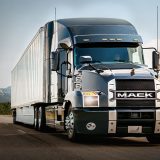Rising Insurance Costs: The 2023 Challenge for Leading Carriers

Rising insurance costs: A challenge shaking the foundation of top carriers.
In the wake of rising insurance costs, prominent carriers such as J.B. Hunt Transport Services, Knight-Swift Transportation Holdings, and Werner Enterprises have been significantly impacted. Recent filings for the first quarter of 2023 reveal a collective increase of $73 million compared to the previous year.
“The elevated cost per claim is becoming more evident.” – John Steele, Werner’s CFO
The Anatomy of Rising Insurance Costs
Werner Enterprises Faces the Heat

A staggering $73 million surge in expenses marks the year’s trend.
With rising insurance costs, Werner’s expenses in this category soared by nearly 33%, reaching $36 million. John Steele, Werner’s CFO, mentioned in a May earnings call, “The elevated cost per claim is becoming more evident.”
Enjoying our insights?
Subscribe to our newsletter to keep up with the latest industry trends and developments.
Stay InformedKnight-Swift’s Financial Strain
Knight-Swift, grappling with rising insurance costs, experienced a nearly 41% rise in costs, amounting to $138 million. Factors such as increased claim frequency and a specific jury verdict played a role in this hike.
J.B. Hunt’s Financial Challenge
J.B. Hunt, not immune to the trend of rising insurance costs, saw its expenses skyrocket by over 52%, totaling $70 million. A significant factor contributing to this was the higher insurance policy premium.
Delving Deeper: Causes and Their Impact
Safety Measures: A Silver Lining Amidst Rising Insurance Costs

Claim frequency and jury verdicts: The hidden culprits behind the surge.
Despite the financial setbacks, Werner executives emphasized the positive strides made in insurance and claims management. Steele highlighted, “Our recent quarterly figures show a decline in both the number and frequency of claims. Moreover, our record for DOT preventable accidents last year was the lowest in a decade.”
“Beyond the current challenges, we’re already implementing measures to enhance our insurance program.” – Dave Jackson, CEO of Knight-Swift
The Ripple Effects of Rising Insurance Costs
Knight-Swift reported a nearly $23 million operating loss in its third-party insurance sector during Q1, primarily due to unfavorable claims. This led to a strategic decision to minimize exposure in this area.
Small Carriers: The Underdogs in the Face of Rising Insurance Costs
Smaller carriers, already facing challenges, find the rising insurance costs exacerbating their situation. Factors such as plummeting spot rates and escalating inflation have altered their risk profiles. This shift has adversely impacted Knight-Swift’s insurance operations, as stated by CEO Dave Jackson in an April earnings call.
Looking Ahead: Navigating the Waters of Rising Insurance Costs
“Beyond the current challenges, we’re already implementing measures to enhance our insurance program,” Jackson shared. These measures encompass strategies like higher pricing, improved collections, and timely policy cancellations.
Broader Implications of Rising Insurance Costs
The transportation industry, especially the trucking sector, has been grappling with the repercussions of rising insurance costs. These costs have surged for a myriad of reasons, many of which are beyond the carriers’ control. For instance:
- While truck-crash frequency and severity increased from 2009 to 2018, the rate of insurance cost hikes during this period surpassed the nominal rate increase in crashes.
- Litigation has added financial pressures on insurers, which subsequently get transferred to motor carriers. It’s not just the high-profile “nuclear verdicts” that are concerning. Even smaller verdicts and settlements in the trucking industry have seen average payments ranging between $406,386 and $449,792.
- Economic conditions within the insurance industry have also played a role. Incurred losses for insurers of commercial vehicles grew annually between 2015 and 2019, marking an overall increase of 50%.
For insights into the challenges facing motor carriers, explore this page.
How Carriers are Adapting
To combat these rising costs, motor carriers have adopted various strategies. One common response has been to decrease coverage levels, especially for amounts exceeding $1 million. While this can reduce premium costs in the short run, it also increases carriers’ exposure to high-value verdict cases.
Higher deductibles have emerged as another tactic to cut down on premium costs. However, this also means carriers bear a larger portion of losses per incident. For small carriers with tighter profit margins, many of these strategies aren’t feasible. They might prefer to pay slightly higher premium costs over time rather than risk significantly higher out-of-pocket incident costs, which could potentially bankrupt them.
Embracing Safety Technology
A silver lining in this challenging landscape is the industry’s pivot towards safety technology. A whopping 92% of carriers have adopted new safety technology in recent years. Road-facing cameras, speed governors, and forward-collision warnings are among the most popular choices. However, it’s worth noting that the adoption of these technologies hasn’t shown a significant correlation with insurance premiums. To dive deeper into the topic of fleet safety in transportation, follow this link.
Snapshot: Key Takeaways from the 2023 Insurance Cost Surge in Transportation
- Rising Insurance Costs in 2023:
- Prominent carriers impacted include J.B. Hunt Transport Services, Knight-Swift Transportation Holdings, and Werner Enterprises.
- Collective increase in insurance costs of $73 million compared to the previous year.
- Anatomy of the Cost Rise:
- Werner’s insurance expenses increased by nearly 33%, reaching $36 million.
- Knight-Swift’s costs rose by about 41%, totaling $138 million.
- Factors like increased claim frequency and specific jury verdicts contributed to the hike.
- Causes and Their Impact:
- Werner’s positive strides in insurance and claims management despite setbacks.
- Steele’s emphasis on the decline in the number and frequency of accidents.
- Record low for DOT preventable accidents for Werner in the previous year.
- Broader Implications:
- The transportation industry, especially trucking, faces repercussions from rising insurance costs.
- Costs have surged due to various reasons, many beyond the carriers’ control.
- Embracing Safety Technology:
- The industry is pivoting towards safety technology.
- 92% of carriers have adopted new safety technology.
- Popular choices include road-facing cameras, speed governors, and forward-collision warnings.
Dig Deeper into Related Topics:
- For more news and updates on operational costs, check out this page.
- Stay updated on the latest trends in transportation insurance, click here.
- Explore our news on factors influencing growth in the trucking industry, visit this link.
- For insights into the strategies of J.B. Hunt, Werner Enterprises, and Knight-Swift, explore these links.
Explore External Resources and Insights:
- J.B. Hunt Transport Services: Discover more about one of the largest transportation logistics companies in North America.
- Knight-Swift Transportation Holdings: Dive into the details of the largest truckload carrier in North America.
- Werner Enterprises: Learn about a premier transportation and logistics company with coverage throughout North America, Asia, Europe, South America, Africa, and Australia.
- Federal Motor Carrier Safety Administration: Understand the regulations and laws in the specific field.
- American Trucking Association: Delve into the challenges and opportunities in the trucking sector.




















